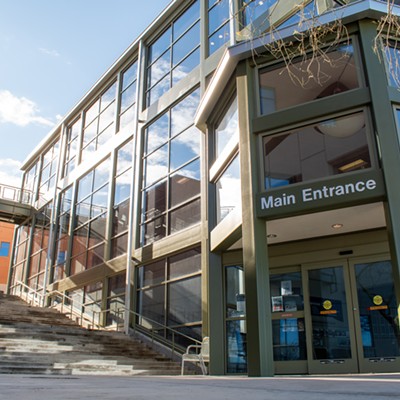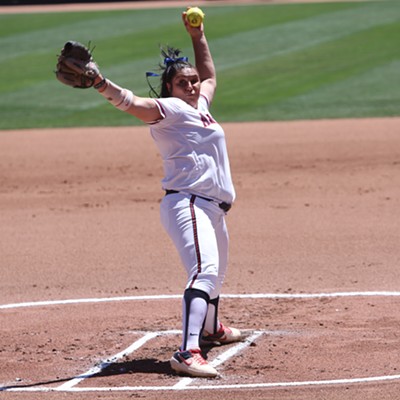Much has been said about recently proposed changes to Pima Community College's admissions policy, and it is time that the record is set straight. (See "Admissions Obstacles," Currents, Aug. 4.)
It should be noted that in changing admissions standards, PCC would be brought into compliance with state law. Arizona Revised Statute 15-1805.01 currently states that those without a high school diploma or high school certificate of equivalency, or GED, must demonstrate "evidence of potential success in the community college." Our proposal is in accordance with this statute.
Opponents of this proposition say it will close the doors to educational opportunities for some prospective students, but we will not be closing any door to anyone. In fact, these changes strive to open new doors to severely under-prepared students who need the most help succeeding in a college setting.
At issue is not whether a prospective student has a high school diploma or GED; it is about discerning "evidence of potential success"—establishing a threshold by which PCC can better identify who is ready for college-level-credit classes, and who requires additional assistance. Prospective students without a high school credential will still be able to take classes for credit if they meet minimum standards on PCC assessment tests. Since 68 percent of students who test below a seventh-grade level currently have a high school diploma, the essential question then becomes: What standard is acceptable? We are proposing sixth- or seventh-grade proficiency in reading, writing and mathematics as a minimum requirement to attend Pima. In contrast, having no standard or encouraging no level of accountability for potential students seems imprudent, at best.
Those who do not meet the threshold will not be turned away. Rather, prospective students who score below established levels will be eligible for existing programs, such as Adult Education or our Center for Training and Development, which offers hundreds of people a chance at meaningful employment.
Additionally, we intend to create a new noncredit pathway program that will offer potential students the tutoring and mentoring they need, on a self-paced basis, to prepare them to retake the assessments and score high enough to begin their college careers. PCC is under no obligation to establish such an alternative program; we believe that those most in need must not be left behind, but rather given priority to succeed.
PCC's calculus on this matter is based on faculty recommendations and is data-driven. We have been looking closely at figures from 2003 to the present that indicate that a student who tests into the lowest level of developmental (or remedial) math has less than a 5 percent chance of receiving a degree or certificate in five years. Students who cannot emerge from the lowest levels of remedial education often keep repeating the same classes. Many qualify for financial aid, which is only available to them for a finite number of semesters. After a few years, students who repeatedly fail may find themselves in debt, and with nothing to show for it.
Students who lack adequate educational preparedness are not unique to PCC. The problem is endemic nationwide. It has implications for the entire community and requires the voice and collaboration of all stakeholders. Pima is exploring partnerships with local school districts and nonprofits to better prepare students for post-secondary education that will yield meaningful careers in an increasingly demanding economy. We cannot settle for a status quo that is not working. The proposed changes are long overdue and, while not a cure-all for the broader challenge, far outweigh inaction, which is what those who oppose our plan are offering.
Doing nothing is not an alternative. Merely talking about the problem is not an alternative. Creating a taskforce or conducting an independent review is not an alternative. Cutting occupational programs, which directly benefit the local economy, is not an alternative. If we wait to act, then PCC will continue to admit severely under-prepared students, take their tuition money, allow them to fail, and put them into debt. This is unacceptable, unfair and unsustainable.
It is irresponsible to be satisfied with failure. Pima is attempting to do something substantial to mitigate a continuing problem. It is easy to say no to change when expectations are high, and the future is uncertain. Leaders who wish to do what is politically courageous apart from those who seek to protect their legacy must recognize that sometimes, the hard thing to do is the right thing.










